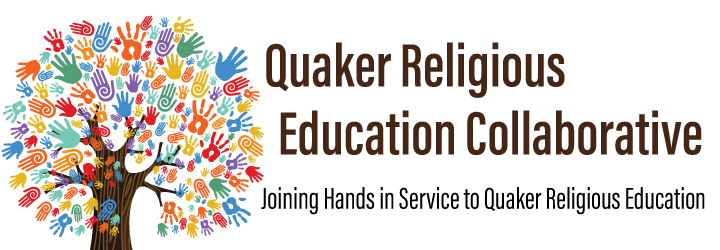
The Northern Yearly Meeting (NYM — located in the upper midwest USA) Children and Youth Committee has considered best practices and recommendations related to virtual meetings involving youth. The Covid-19 pandemic has led to widespread use of virtual technologies for meeting with our youth. However, it is likely that now that this bridge has been crossed Northern Yearly Meeting in particular, but also local Meetings/Worship Groups, may want to continue using virtual meetings to stay connected with our far-flung youth. Therefore we are offering the following for consideration. We welcome feedback and input so that together we can improve our practices.
Use of Kindly Adult Presences (KAPs)
KAPs are an important part of our youth programs. KAPs help provide additional role models, bring in additional perspectives and knowledge, and can help in responding to situations that come up during virtual meetings, as they do during in-person meetings. Where breakout sessions are used and could benefit from the presence of an adult to facilitate or monitor the conversation, there continues to be a need for KAPs.
KAPs also help insure that at least two adults are present during programming. While virtual meetings using Zoom or similar technologies remove some child safety concerns, there is still potential for actual harm or accusations that could be damaging to individuals and the program. The most significant risk, as is the case for in-person events, is the potential for one youth to be online with one adult. While it is much easier, and involves less immediate risk, for youth to leave such encounters, one can imagine that youth who like an adult program leader might stay online and be unaware that they are being “groomed” during this encounter. More explicit types of sexual activities are possible online as well. The Committee recognizes that there are mitigating factors, the main one being that parents are often around the house when such meetings are taking place and while they may not be directly participating their “antenna” may be raised and sensitive to encounters that do not seem appropriate.
While providing adult supervision is necessary, youth also have unsupervised free time during in-person retreats when they may gather in and around the Meetinghouse. However, adult leaders and KAPs are still “around” and have the potential to “look in” at any point.
Therefore, to address supervision, support and safety the NYM Children and Youth Committee believes the following policies are appropriate for virtual retreats and meetings:
- We should utilize KAPs for all the positive reasons that we currently do so as well as for youth safety reasons. The number of KAPs should be appropriate for the activities that are going on during any virtual session. If there is going to be discussion of a retreat theme and the group will break out into smaller groups, the Coordinator should consider whether it is important to have an adult in each of these breakout groups. Sometimes such breakouts may not require an adult presence (e.g. a 15-20 minute breakout for small group scavenger hunts).
- KAPs are subject to the same screening process as for in person events.
- Limited free time is appropriate, generally no more than 30 minutes. At the end of such free time the Coordinator should check in and close the meeting. Youth may choose to reconvene on their own time through their own online accounts for additional interaction.
- Parents are informed of the online meeting schedules and plans, including plans for ‘free time’, so they may be aware of their youth’s participation and monitor as they feel appropriate to the needs of their child.
Virtual Meeting Technology Parameters
Online meeting programs have many features. Consideration of how these features can promote safe online behavior include. Examples from Zoom include the following:
- ‘Cannot join before host’ means that youth are not “unsupervised” during this time.
- ‘Waiting room on’ ensures that adults can monitor who is entering the meeting.
- ‘Removed participants cannot rejoin’ can reduce disruptive behavior.
- ‘Muted on entry’ reduces disruption if people join after programming begins.
- ‘Participant whiteboard off’ reduces disruption.
- ‘Disabling screen share’ reduces disruption and exposure to inappropriate materials.
- ‘Only host can share screen’ reduces inappropriate screen sharing by youth.
- ‘Chat function off’ or ‘Public chat only’ reduces the likelihood that youth are distracted by private side conversations (some of which could be annoying or feel like harassment).
- ‘Virtual background off’ reduces distractions.
Of course there are times when functions such as whiteboard, screening sharing and chatting can be used as part of activities for youth and would be enabled. The age of the youth is also a consideration in whether these functions can be enabled without excessive disruption.
Many of these practical, specific guidelines are borrowed from Philadelphia Yearly Meeting, Guidance and Practices for Online Youth Gatherings:
Darkness to Light offers this guidance for teachers on safe digital learning:
Access to Email
Use of online meetings may mean that adults working with youth have access to their email accounts. To the degree that this function can be centralized it will limit access to these accounts. In any case, parents should be knowledgeable about what information is being shared about their children. Best practice is never texting/emailing students one-on-one. Instead, use an NYM or Meeting communication platform where someone can send an email through the group list without having access to individual emails. If you must send a text/email, send a group text/email or include parents or another adults in the communication.
Resource for Parents
Parents may wish to review this fact sheet on digital safety.
Author: Northern Yearly Meeting Children and Youth Committee
Illustrator:
Publisher: Northern Yearly Meeting
Age Group: Adults
Preparation Time:
Related File: Click to view/download file
Related Link (or File): Click to go to link
Topics: Child Safety, Teacher Training



